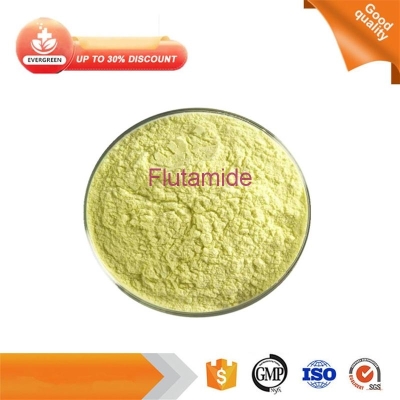-
Categories
-
Pharmaceutical Intermediates
-
Active Pharmaceutical Ingredients
-
Food Additives
- Industrial Coatings
- Agrochemicals
- Dyes and Pigments
- Surfactant
- Flavors and Fragrances
- Chemical Reagents
- Catalyst and Auxiliary
- Natural Products
- Inorganic Chemistry
-
Organic Chemistry
-
Biochemical Engineering
- Analytical Chemistry
- Cosmetic Ingredient
-
Pharmaceutical Intermediates
Promotion
ECHEMI Mall
Wholesale
Weekly Price
Exhibition
News
-
Trade Service
KEYNOTE-063 is a randomized, open-label Phase 3 study conducted at 36 medical centers in 4 Asian countries (China, Malaysia, South Korea and Taiwan)
.
To investigate the efficacy of pembrolizumab (pembrolizumab) versus paclitaxel as a second-line treatment for Asian patients with advanced PD-L1-positive (CPS≧1) gastric/gastroesophageal junction (GEJ) cancer
Enrolled patients were randomly assigned (1:1) to pembrolizumab 200 mg intravenously every 3 weeks for 2 years, or 80 mg/m2 intravenous paclitaxel once weekly
.
The primary endpoints were overall survival (OS) and progression-free survival (PFS), and secondary endpoints were objective response rate (ORR) and safety
2
Following the initiation of the KEYNOTE-063 study, results from the global KEYNOTE-061 study (NCT02370498) showed that pembrolizumab did not improve OS compared with paclitaxel in patients with gastric cancer that had progressed after prior therapy
.
Therefore, screening and enrollment for the KEYNOTE-063 study were terminated on March 12, 2018
Following the initiation of the KEYNOTE-063 study, results from the global KEYNOTE-061 study (NCT02370498) showed that pembrolizumab did not improve OS compared with paclitaxel in patients with gastric cancer that had progressed after prior therapy
Median OS was 8 months (95% confidence interval [CI], 4-10 months) in the pembrolizumab group and 8 months (95% CI, 5-11 months) in the paclitaxel group (risk ratio [HR], 0.
Median progression-free survival was 2 months (95% CI, 1-3 months) in the pembrolizumab group and 4 months (95% CI, 3-6 months) in the paclitaxel group (HR, 1.
62; 95%CI) , 1.
04-2.
52)
.
62; 95%CI) , 1.
04-2.
52)
.
Median progression-free survival was 2 months (95% CI, 1-3 months) in the pembrolizumab group and 4 months (95% CI, 3-6 months) in the paclitaxel group (HR, 1.
The ORR was 13% in the pembrolizumab group and 19% in the paclitaxel group
.
The CR rates in the two groups were 4% and 6%, respectively
The ORR was 13% in the pembrolizumab group and 19% in the paclitaxel group
Median DOR was 8 months (range 3-20+) in the pembrolizumab arm and 12 months (range 2-17+) in the paclitaxel arm; notably, 4 patients in each arm had sustained responses more than 6 months
.
.
Median DOR was 8 months (range 3-20+) in the pembrolizumab arm and 12 months (range 2-17+) in the paclitaxel arm; notably, 4 patients in each arm had sustained responses more than 6 months
Treatment-related adverse events of any grade occurred in 28 pembrolizumab-treated patients (60%) and 42 paclitaxel-treated patients (96%); grade 3 to 5 events occurred in 5 (11%) and 28 (64) patients, respectively.
%) in patients
.
In conclusion, the study showed that the results of the KEYNOTE-063 study were consistent with the global KEYNOTE-061 study results, and that pembrolizumab did not improve the efficacy of Asian PD-L1-positive gastric/gastroesophageal junction (GEJ) cancer patients compared with second-line paclitaxel
.
.
The study showed that the KEYNOTE-063 study results were consistent with the global KEYNOTE-061 study results, and pembrolizumab did not improve the efficacy of Asian PD-L1-positive gastric/gastroesophageal junction (GEJ) cancer patients compared with second-line paclitaxel
.
Original source:
Chung HC, Kang YK, Chen Z, Bai Y, Wan Ishak WZ, Shim BY, Park YL, Koo DH, Lu J, Xu J, Chon HJ, Bai LY, Zeng S, Yuan Y, Chen YY, Gu K, Zhong WY, Kuang S, Shih CS, Qin SK.
Pembrolizumab versus paclitaxel for previously treated advanced gastric or gastroesophageal junction cancer (KEYNOTE-063): A randomized, open-label, phase 3 trial in Asian patients.
Cancer.
2022 Mar 1;128 (5): 995-1003.
doi: 10.
1002/cncr.
34019.
Epub 2021 Dec 8.
PMID: 34878659.







